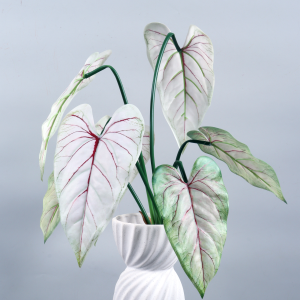Exploring the Market Attributes of Artificial Plants Manufacturers
In a world where approximately 80% of consumers prefer low-maintenance home decor, artificial plants manufacturers have emerged as key players in the interior design market. The global market for artificial plants is projected to reach $2 billion by 2025, reflecting a significant shift towards sustainable and hassle-free living environments.
Click to find more about artificial plants manufacturers.
The Characteristics of Artificial Plants Manufacturers
Artificial plants manufacturers are characterized by their innovative approaches to product development and marketing strategies. These companies often focus on creating realistic-looking products that cater to diverse consumer preferences while emphasizing durability and ease of maintenance. In terms of brand positioning, these manufacturers typically align themselves with themes such as sustainability, affordability, and aesthetic appeal—factors that resonate strongly with modern consumers seeking both style and practicality.
The Role of Artificial Flower Arranging Supplies in Brand Positioning
artificial flower arranging supplies play a crucial role in enhancing brand positioning for artificial plants manufacturers. By offering complementary products such as vases, decorative pots, and floral accessories, these companies can create comprehensive solutions for customers looking to enhance their living spaces. This strategy not only broadens the product range but also reinforces the brand’s commitment to providing an all-encompassing experience that meets various decorating needs.
A Detailed Examination of TrustFloral’s Brand Positioning Features

TrustFloral exemplifies effective brand positioning within the artificial plants manufacturing sector through its emphasis on quality craftsmanship and customer satisfaction. The company has successfully established itself as a trusted name by prioritizing eco-friendly materials and ethical production practices. Furthermore, TrustFloral engages its audience through targeted marketing campaigns that highlight user-generated content showcasing real-life applications of their products—thereby fostering community engagement while reinforcing brand loyalty.
Conclusion
In summary, artificial plants manufacturers exhibit distinct characteristics related to innovation and strategic branding efforts aimed at appealing to contemporary consumer values. Through careful consideration of factors like product realism, complementary offerings such as artificial flower arranging supplies, and dedicated branding initiatives exemplified by companies like TrustFloral, this industry continues to thrive amidst changing market dynamics.
